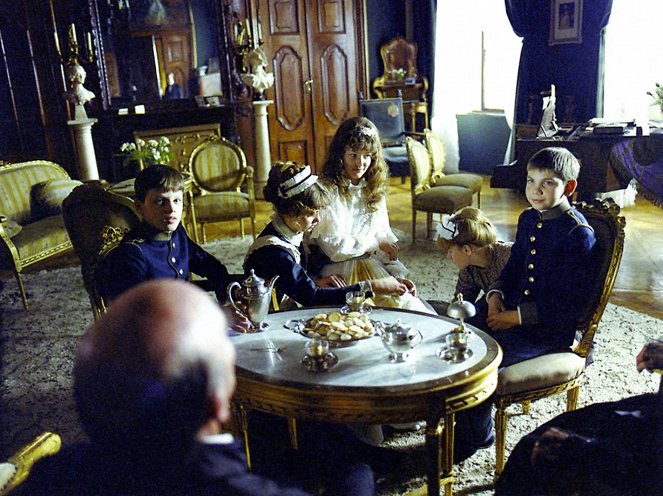Réalisation:
István SzabóPhotographie:
Lajos KoltaiMusique:
Zdenkó TamássyActeurs·trices:
Klaus Maria Brandauer, Gudrun Landgrebe, Hans Christian Blech, Armin Mueller-Stahl, Jan Niklas, László Mensáros, Tamás Major, Károly Eperjes (plus)Résumés(1)
Fils de cheminot admis à l'Académie Militaire de l'Empire austro-hongrois, Alfred Redl se lie d'"amitié" avec un jeune aristocrate. Dissimulant ses origines comme son homosexualité, il gravit rapidement les échelons de la hiérarchie. À la veille de la Première Guerre mondiale, l'archiduc François-Ferdinand lui confie la responsabilité des services secrets. (Doriane Films)
(plus)Critiques (3)
Biographical films are either historically accurate but uninteresting from a dramatic perspective, or they are interestingly written and filmed fictions that have borrowed the name of the main character from real history. István Szabó's Colonel Redl is not a biographical film in the true sense of the word, because it is based on a play by British playwright John Osborne, who was only loosely inspired by the fate of this officer, who was once convicted of espionage. On the other hand, it does not deviate significantly from Redl's life path, and Szabó can perfectly capture the atmosphere of the time period. Under his direction, a film was created that is not necessarily flashy, but a powerful and gripping story about an ambitious man who was able to discard many inhibitions in his desire for a career, but due to his low-born background and relative poverty, he encountered much stronger and more ruthless opponents, and the wheels of history ground him down. The film's story speaks volumes about the dubious morals of the powerful at the time, and about how things work in high politics. For me, it is the pinnacle of the director's work. Overall impression: 95%.
()
While the Colonel Redl affair has excited filmmakers regularly since the 1920s, Szabó's version seems to be the last one for many years. In recent years we seem to have lost interest in the monarchy period. And yet these years are full of typically exciting cases, such as that of Alfred Redl (1864-1913). However, after being introduced to the entire loose trilogy with Klaus Maria Brandauer, I'm not particularly excited about it. As a narcissistic actor, a homosexual careerist, or a clairvoyant, he still excels at the same acting virtues, and his characters disappear into his solo performances.
()
Slightly less engaging than Mephisto, mainly due to the more stereotypical dialogue, but still a piece of excellent and intense filmmaking that, despite the announced fictional story, very authentically depicts the political pomp and intrigue in the final stages of the Habsburg monarchy. Together with Alfred Redl, an ambitious guy with good connections who has risen to the rank of colonel, we learn about the adverse effect growing power has on human personality and the racist hierarchy of the army of the time, where a person’s origin occupies a more privileged position than previous merit and advantageous acquaintances. The best scene is the dialogue about the search for a scapegoat with a suitable origin for the public intimidation process, it really gives me chills…
()

